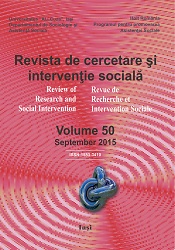THE DYNAMIC-SYSTEMIC-PROCESS MODEL OF INTERNATIONAL COMPETENCIES FOR PSYCHOLOGISTS AND TRAINEES
THE DYNAMIC-SYSTEMIC-PROCESS MODEL OF INTERNATIONAL COMPETENCIES FOR PSYCHOLOGISTS AND TRAINEES
Author(s): Lawrence H. Gerstein, Erica HURLEY, Ashley HutchisonSubject(s): Psychology, Sociology of Culture
Published by: Expert Projects Publishing
Keywords: competencies; international; culture; training; multicultural;
Summary/Abstract: A new model called the Dynamic-Systemic-Process Model of International Competencies that can contribute to psychologists and trainees developing and employing culturally relevant and effective international skills is introduced. This model represented by double helix Möbius strands is based on previous models of international competencies, and also Dynamic Systems Theory (Thelen & Smith, 1994) and Expectancy Theory (Vroom, 1964). In general, our model is guided by the assumption that psychologists and trainees’ learning and development of international competencies is continuous, not sequential but recursive, constantly evolving and changing, cumulative, highly dynamic, and in a reciprocal relationship with the environment. The background, structure, and suppositions linked with this model as well as implications for training and research are discussed.
Journal: Revista de Cercetare şi Intervenţie Socială
- Issue Year: 2015
- Issue No: 50
- Page Range: 239-261
- Page Count: 24
- Language: English

